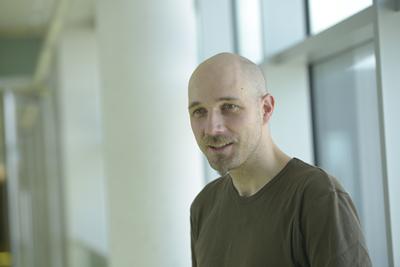Dr Magnus Borgh
Former Research Fellow

- Related links
- Personal homepage
Dr Magnus Borgh is a former Research Fellow within Mathematical Sciences at the University of Southampton. He is now Research Fellow at the University of East Anglia.

Dr Magnus Borgh is a former Research Fellow within Mathematical Sciences at the University of Southampton. He is now Research Fellow at the University of East Anglia.
My research concerns the theory of Bose-Einstein condensates. This is a state of matter that arises when gases of certain kinds of atoms are cooled to temperatures close to absolute zero. They then undergo a phase transition into a state where all atoms reside in the same quantum-mechanical state. Such Bose-Einstein condensates have several interesting properties, including superfluidity and associated phenomena such as the appearance of quantised vortices and other so-called topological defects.
One of my research directions is the study of topological defects in Bose-Einstein condensates where the atoms have non-zero spin, called spinor condensates. In such condensates more complicated types of vortices arise,whose properties and interactions differ greatly from the well-known quantised vortices in non-spinor Bose-Einstein condensates. Some topological defects thatarise in spinor condensates are analogous to objects occurring in theories of the cosmology of the very early universe. In spinor I use computer simulations using the Iridis Computer Cluster to study what topological defects arise and how they behave.
I also do theoretical studies of Bose-Einstein condensates of quasiparticles in solid-state systems, in particular of exciton-polaritons in semiconductor microcavities. These are particles that can be described as "half matter-half light". Quasiparticle condensates are especially interesting because they are inherently non-equilibrium systems. The particles have a very short lifetime,and the condensate must be replenished with new-formed particles continuously.This must be taken into account in the theoretical description and leads to novel phenomena, such as the spontaneous formation of vortices. We have also,for example, predicted the occurrence of Josephson oscillations between the two polarisation directions of exciton-polaritons in a condensate.